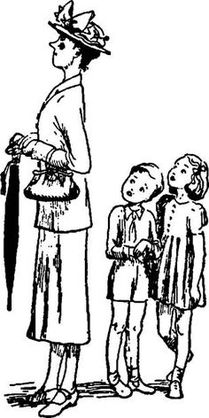
As a marginalized writer of lesbian-feminist plays, I used to wonder what it would be like if one of my plays achieved first-class production (which is the industry lingo for “Broadway-level”). My question was answered when a Brazilian film and television star ran across a collection of my plays in a bookstore near Union Square, read my play about Joan of Arc, and decided to produce and star in it. In Brazil, of course. First-class production!
A word about the play: It was a one-woman show dealing with Joan of Arc as a teenaged, lesbian, butch runaway who was returning from the grave with a searing radical feminist critique of her experiences and those responsible for them. She is returning with a mission to warn contemporary women that they are facing the same enemies and that they need to understand this and to fight.
In other words, an unlikely candidate for first-class production.
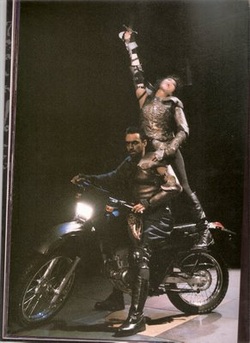 Joan of Arc with "Scenic Element"
Joan of Arc with "Scenic Element" Is Brazil a nation of lesbian feminists? What could possibly explain this?
Well… For starts, this one-woman show featured four really beefy, macho men. They rode motorcycles onto the stage, making a lot of noise, but no “lines” per se. This enabled the producer to designate them “scenic elements,” not added characters… which would have been a violation of my contract.
These four Hell’s Angels would circle Joan, maul her, cradle her, drive her on the back of their motorcycles… In other words, come constantly between her and the audience. And the butch thing was gone, completely. Joan wore enough eye makeup to put Theda Bara to shame, and she was dressed in tights.
And then there was the rape.
Joan was raped in her prison cell in a situation that was clearly engineered to make her prefer death to life. And it worked. She recanted her recantation and was burned at the stake.
Now, lots of playwrights have written about Joan.. Bernard Shaw, Jean Anouihl, Eva Le Gallienne... and they end at the stake. I didn’t want to do that. In my play she is returning from the dead. The stake is in the past. We are looking to the future. I wanted to respect and protect the survivors in my audience who did not need to have their trauma memories restimulated. I did not want to write a play where, once again, the boys win.
In the Brazilian production, there was no such sensitivity. The four “scenic elements” stripped down to full frontal nudity and performed the assault on the stage. They raped my character. They raped my play. The play I had crafted to empower and inspire survivors became one more traumatic encounter reinforcing the helplessness of women, always outnumbered by the machine of patriarchy.
And they screwed me financially. Of course. It took more than three years to recover my royalty, and the amount was not commensurate with the success of the work.
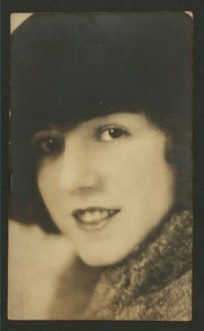 PL Travers
PL Travers Because I am a lesbian writer whose beloved lesbian protagonist was hideously mangled by the machinery of patriarchal theatre, and I was angry about that. Really, really angry. Still am, because the pain of that experience never goes away. And I believe that PL Travers was a lesbian writer whose beloved lesbian protagonist was hideously mangled by the machinery of patriarchal Hollywood, and that she was angry about that. Really, really angry. And now the world is invited to come and mock this thoroughly unpleasant woman.
I come to celebrate her.
Was PL Travers a lesbian? Duh.
Some insist that she was bisexual, but the evidence for that is very sketchy. Aggressively pursuing publication, Travers went to Dublin to meet the editor Æ (aka George Russell), who had sent her an encouraging letter about her poems. He was married and twice her age, with a penchant for encouraging young writers. Travers’ biographer characterizes their friendship as “filial, intellectual, and marked by romantic gestures.” In other words, he flirted. But more to the point, he insisted that she get together with Madge Burnand. She did indeed get together with Madge, moved in with her, wrote the first Mary Poppins book in a cottage with her, and continued to live with her for ten years in a relationship that her biographer characterizes as “intense.” Duh.
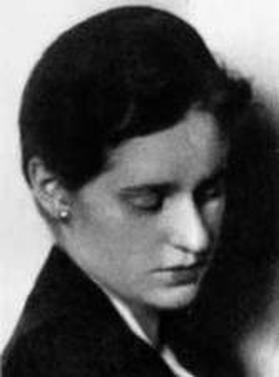 Jessie Orage: One of PL Travers' Lovers
Jessie Orage: One of PL Travers' Lovers 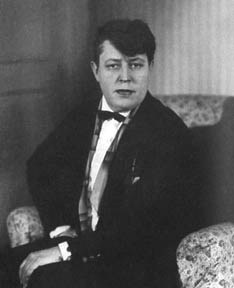 Jane Heap, Member of "The Rope"
Jane Heap, Member of "The Rope" Eight years later, Travers published the first Mary Poppins book, and the most significant change between the 1926 version of the famous nanny and the 1934 one, had to do with Mary Poppins’ relationships with men. Bert is no longer a boyfriend, but a buddy… or, more accurately, a groupie. Mary Poppins has become what one writer calls “untouchable and distant,” but I would use the word “exalted.” She is morphing into archetypal forms. Æ suggested the goddess of destruction and empowerment, Kali—and Travers did not disagree. By 1934, the proper nanny of her earlier stories had begun to supercede the ineffectual mother Mrs. Banks. No one except Mr. Banks, according to Travers, could understand her.
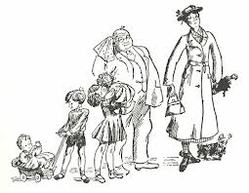
Disney, by the way, turned Mrs. Banks into a "Suffragette," because in his mind, this was synonymous with bad mothering. PL Travers, no doubt aware of the heavy lesbian butch presence among the ranks of women militating for equal rights, was baffled and unhappy with his choice. Truly, her flighty and uber-feminine Mrs. Banks would have been terrified by the Suffragists.
But back to Mary Poppins. I know this archetype. I have been working with lesbian archetypes in my writing for thirty years. I find them in the writings of other lesbians, in their biographies, in our spiritual traditions and rituals, and in the lives of the women I love. And they are completely invisible—censored—in mainstream culture. Where they do surface, they are wildly misinterpreted, ridiculed, or demonized. As is the character of PL Travers in Saving Mr. Banks. Which is more like "Saving Mr. Disney."
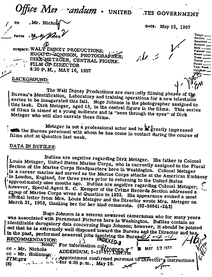 Memo from Walt Disney's FBI Files
Memo from Walt Disney's FBI Files And he was a misogynist, a fact reflected in his hiring practices... as well as his need to ridicule the movement for women's suffrage.The letter below spells out the Disney Studio's policy: "Women do not do any of the creative work..."
PL Travers did not like the original script and traveled to Hollywood to consult. Walt met with her once and then took off for his ranch, leaving the creative team, with two days’ advance notice, to deal with her perfectly legitimate objections to the appropriation of her lifework.
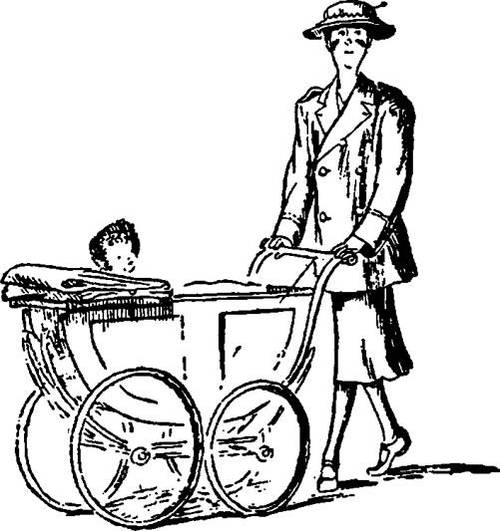 Oversized double-breasted men's jacket w/epaulets and shoulder pads and military-style armbands on sleeves, with sensible shoes.
Oversized double-breasted men's jacket w/epaulets and shoulder pads and military-style armbands on sleeves, with sensible shoes. And then there was the animation. When Travers signed her agreement, she never dreamed that Disney would be sneaking animation into a film with live actors. Technically, it was not an animated film. He was sticking to the letter of the agreement, but not the spirit. The animated dance sequence took up a remarkable fifteen minutes of screen time. Was he just rubbing it in?
Not surprisingly Travers raised hell.
No, Disney did not invite her to the opening. This was a professional insult. Resourceful dyke that she was, she shamed another Disney executive into sending her an invitation. Yes, she wept at the premiere, but they were tears of frustration and disappointment. The animation! At the after-party she confronted Disney. According to Richard Sherman, who co-wrote the music, she declared in a loud voice, “Well. The first thing that has to go is the animation sequence.” Disney looked at her coolly and replied, “Pamela, the ship has sailed.” (She had asked him to call her Mrs. Travers.)
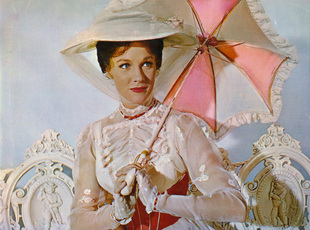 Pink ruffled parasol, see-through sleeves, lace gloves.
Pink ruffled parasol, see-through sleeves, lace gloves. I feel for Travers. I feel for her pain in fighting so hard for the real Mary Poppins, but lacking a language and a literature of archetypes to which she could point and say, “No, this is not that! Here is the frame of reference!” But that literature was as censored as her identity. She insisted on being called Mrs. Travers, but there was no husband. There never had been. "Travers" was her father’s first name. How could “Mrs. Travers” possibly, in 1960, advocate for all of the attributes, affinities, mythological referents that belong to our culture?
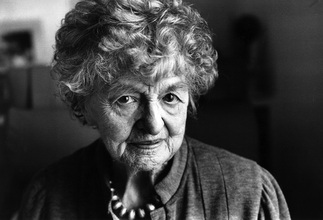 PL Travers, Warrior Woman
PL Travers, Warrior Woman Italian feminst Carla Lonzi has said, "Men use myth; women don’t have sufficient personal resources to create it. Women who have tried to do so by themselves have endured such stress that their lives have been shortened by it." But Travers beat the odds, living to be nearly a hundred. I submit that her fighting spirit, the very spirit so vilified in the movie, had a great deal to do with her longevity. Well-behaved women rarely make centenarians.
Saving Mr. Banks is a witch-burning. Make no mistake about that. Give me a film company and I will show you a film about a powerful, visionary, immanently reasonable lesbian fighting off an evil army of propagandists who are hell-bent on breaking the spirit of one of the greatest lesbian archetypes ever set on paper… a liberator of children, a goddess to the natural world, a harbinger of a new order in the wake of the collapse of capitalism. I invite you to imagine and inhabit that scenario, because, sisters, I promise you that it is the real story.
Like this blog? You'll probably enjoy my blog "Stealing the Herd" and the Butch Visibility Project.
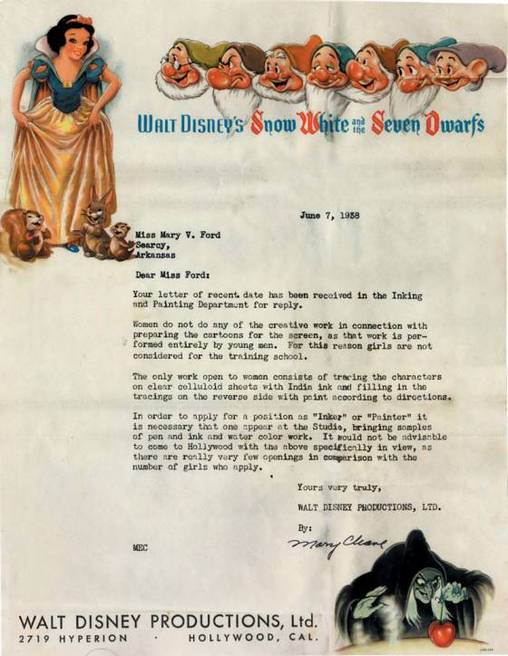

 RSS Feed
RSS Feed
